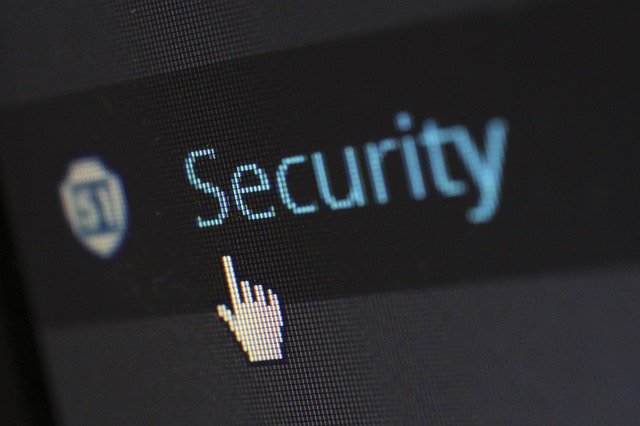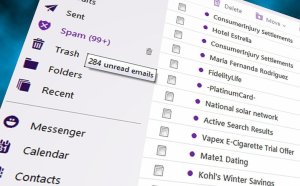
I recently went on holiday abroad, taking my phone complete with school email with me. This is one of the reasons I havent posted anything new over the last few weeks. While away I checked my email occasionally plus replied to several emails. This got me thinking, was what I was doing wrong from a health and wellbeing point of view?
I have previously read various people writing about the need to establish a work/life balance with email often making an appearance among the discussion. The discussion often including tales of notifications being received late into the night, or emails requiring urgent action before Monday morning being received on weekends. Some have suggested schools should block or prevent the sending of emails in the evenings or at weekends or have suggested that teachers shouldn’t add their school email account to personal phones, adding it only on work issued phones.
I did have a school phone for a period of time, carrying two phones, one for personal use and one for school use. A number of years ago I handed back my school phone as having two phones added complexity and inconvenience. E.g., Having to decide which phone to use or which phone to answer? Deciding which apps were on which phone, etc. I also didn’t see the point of the school paying for a service and device while I was carrying a personal device which could happily meet all of my work requirements. This was a personal decision and I note that I considered the data protection implications in making the decision. For me it is also acknowledgement that I am not two people, a personal and a professional me, but am instead a single person with two linked aspects to my life, my personal and my professional life.
The distinction between personal and professional lives is often made, for example on social media in having separate personal and professional accounts. I have difficulty with this. If I post something inappropriate or at least contentious on my personal account, it is all too easy to link that with my professional account and therefore my school, so what is the point in having the added difficulty of managing two separate accounts? In the real world my professionalism can be held to account for my actions during my down, or personal time, and I cant then say “but that was my personal account” so why should social media be different? Now there are some data protection implications here however that’s a whole other post. Let’s for now leave that issue with the fact, if I had a separate professional account, it would identify as being me in my role as opposed to belonging to the role, an organisational unit within the school or the school itself. As such the account would still be, to an extent, personal to me, which only adds to view that maintaining separate personal and professional accounts adds no value.
But why did I answer my emails and basically do some work when I was on holiday? I think part of the answer lies with the fact I am quite poor at resting. I feel at my best with a to-do list and ticking things off. I also feel invested, enjoyment and empowerment in my role. It is a key and important part of my life so to dip into emails for a few minutes and pick off a few tasks felt more appropriate than leaving them for a week until I returned to work. It was a personal decision. And in making the decision I was happy to spend a few minutes on email however I was equally happy to leave a number of emails alone, to await my return to work. If work/life balance is what I need to achieve, answering those couple of emails didn’t feel out of balance.
That said, I do always try to balance things out so I have set up appropriate Do Not Disturb timings on my phone plus adjusted the notifications settings to ensure I am not constantly drawn to check my phone outside of my normal working hours. I will acknowledge I suspect I look at my phone more often than I should mainly due to my social media usage and the habits I have built up, however I am currently looking at ways to help me address this including stopping using my phone as an alarm clock meaning it no longer has to be in the bedroom in the evening and morning.

And I think this is where the answer to this situation lies. It partly lies with the school to avoid and manage emails, and other tasks, such that it doesn’t encourage the sending of excessive volumes of email, or the sending of emails at inappropriate times. This relates to the espoused expectations of the school in relation to email and communications, plus to the wider culture and climate within the school. But responsibility also lies with the individual to ensure they do not contribute to the issue in their sending of emails to others, plus they consider the practices that work best for them, including if this involves answers a couple of emails while sat by the pool or looking out towards the sea on holiday.
And as a final conclusion, I did enjoy my holiday which is what matters!



 We all love to use email as it allows for such easy communication. I can communicate information to everyone in the school, or to a specific department or to an individual staff member at the touch of the Send button. I can have a discussion with another member of staff without having to seek them out across campus and allowing for their timetable. I can get a thought or question which arises in my mind down and fire it off for comment and the thoughts of others independent of time and the availability of the people I invite to comment.
We all love to use email as it allows for such easy communication. I can communicate information to everyone in the school, or to a specific department or to an individual staff member at the touch of the Send button. I can have a discussion with another member of staff without having to seek them out across campus and allowing for their timetable. I can get a thought or question which arises in my mind down and fire it off for comment and the thoughts of others independent of time and the availability of the people I invite to comment.